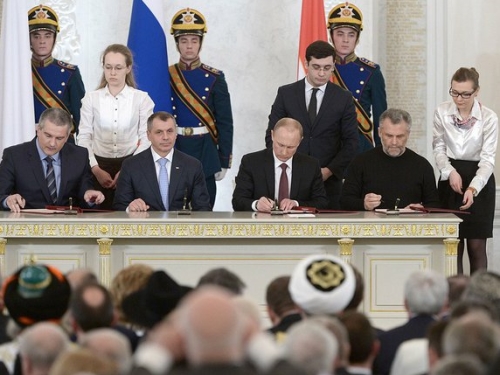
This article was originally published as part of the ‘Ukraine and Russia’ Collection by E-International Relations on 20 March, 2015.
Imagine for a moment that tanks roll into your state. Armed and masked men without military insignia occupy your city streets. The airport is closed. Then, after a hasty vote, a new leader, someone you understood was part of the criminal underworld, is promoted to the top executive position. Suddenly, you must turn your clocks back two full hours to correspond with the new capital, some 1,400 kilometres away. Your ATM card stops working, and then your bank closes. Familiar foods, foods you have been eating your entire life, are banned and disappear from grocery store shelves to be replaced with foreign ones. Your medication becomes six times more expensive than before. Then your cell phone stops working, and you must find a new carrier to regain service. The television station you relied on for nightly news closes. You are told you have three months to turn in your passport for a new one, or you may not be able to renew your driver’s license or return to your home after travel. This chaotic and liminal situation is not, of course, hypothetical. It is what happened to residents of Crimea following annexation by the Russian Federation.
